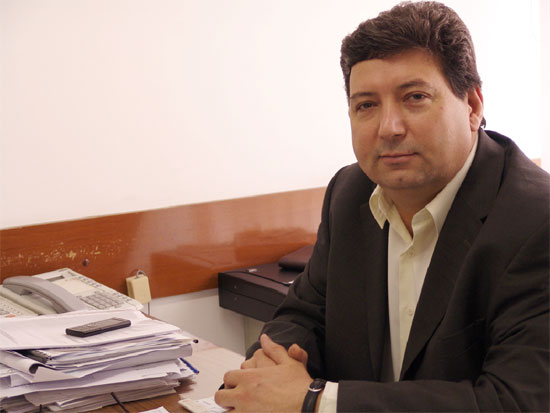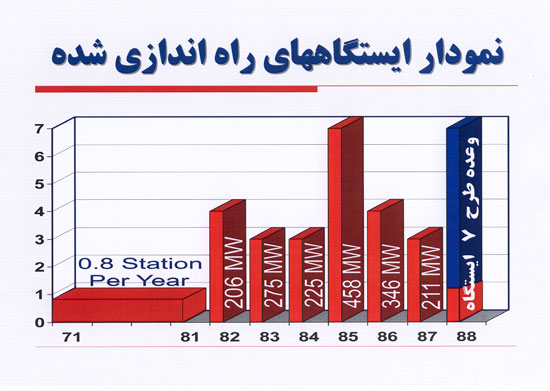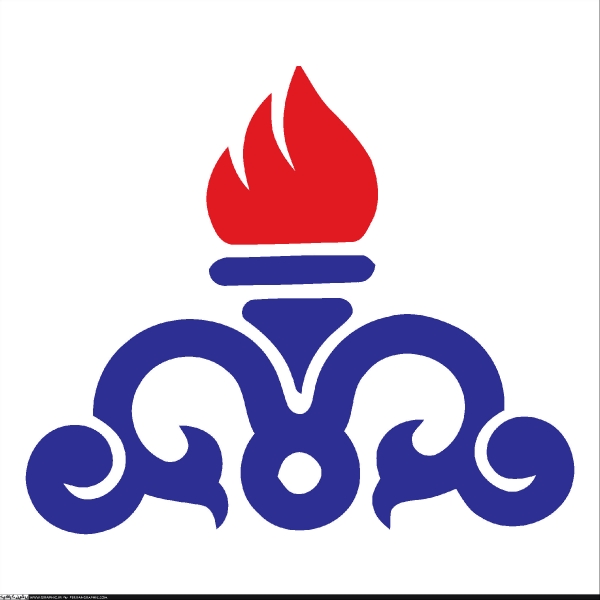Knowledgeable Contractors Should Take Charge
He was employed by the National Iranian Gas Company on June 10, 1991 and started work as the engineer in charge of projects at Sarkhoun gas refinery. After serving in various capacities, he took charge of the gas compression stations project since early 2004 and is currently working as head of the construction and installation for gas compression stations projects of the company. Alireza Valizadeh Asl is of Turkish stock and was born in Tehran in 1958. He finished high school at Kharazmi High School in 1976 and graduated from roads and construction course of California State University. In February 2007, he obtained an MBA from Wollongong University of Australia.

Q: As first question, I asked him to talk about his employment at the National Iranian Gas Company.
A: It was quite accidental. From the beginning, I worked with Mr. Mer’ati. Since my employment at the company, I have been working with him. During 18 years of cooperation, I think we have been very successful because we have many things in common and this has helped us continue our projects.
Q: How one can establish good rapport to colleagues in order to advance the work?
A: We work as a team. We do not work separately. Therefore, we try to have friendly relations to allow our colleagues use all their energy and do the job in a proper manner.
Q: Mr. Valizadeh maintains that attention to the problems of the personnel is the most important factor helping to establish good relations between employees and managers. He continues by saying: “Any director expecting his employees to work should pay attention to their spirits and establish friendly relations with them as far as principles of communication allow. They must try to meet their demands and while maintaining the hierarchy, give them room. I have tried to allow project managers to do their job and help them when a problem arises. We must build confidence. It cannot be given but should be taken. Therefore, when an employee does his job correctly, his superior has to meet his/her demands.
Q: Please explain about gas compression stations.
A: Due to the long distance the gas has to travel through the pipeline, its pressure falls. Therefore, in view of hydraulic design of the pipeline, there should be compression stations every 110-130 km in order to increase gas pressure and inject it back into the same pipeline. Turbo-compressors are the main components of gas compression stations because all other things are done to enable turbo-compressors do their job. There are many sections at a compression station which include separation filters, power cables, instruments, control buildings, switch room, battery building, generator, maintenance buildings and sometimes a hostel.
Q: How many compression stations are there across Iran?
A: There are about 55 gas compression stations across the country, 50 percent of which has been designed and built after 2003. One of the most important things done from 2003 onward has been annual launch of three, seven, four… stations and this has been a major achievement for the Iranian gas industry. The graph clearly shows the above fact.

Q: How many compression stations are currently being built?
A: About 15 stations are being built right now and tender bids for 11 stations are under way and contractors will be selected in about two months. Also, apart from compression stations, 6-7 small and big projects are going on
He maintains that on-time delivery of turbo-compressors is the main problems and continues by saying, “If every station progresses about 75-80 percent in physical terms, it will be suitable for launch in about 2.5 months after turbo-compressor is added.”
Q: How do you correct consumption model in your work?
A: As you know, correcting consumption model does not mean that you should not consume, but it means correct consumption. We must care about designs and optimize them. Of course, good steps have been taken and we have tried to reduce costs when signing contracts and also to make good use of financial resources.
Q: If you had not been employed by the gas company, what job would have you preferred to pursue?
A: In our family, we were told to work continuously and seriously. I have tried to fulfill my duties in the best manner. However, if I had not been employed by the gas company, I would have continued to study road and construction. Of course, a great part of the gas company’s projects involve civil operations.
Q: Do you have a memory of your work years?
A: I remember that in early winter 2008, I was inspecting Marand and Margonlar stations. It was supposed to take 24 hours, but we returned to Tehran after 31 days. I thought that I was needed there to prevent any delay in the project. Working at a temperature of minus 15-27 degrees Centigrade along with all contractors’ personnel, consultants, foreign workers and other colleagues up to the midnight is not a memory to be easily forgotten. We were only off the work on Ashura. God helped us to launch Marand stations to keep gas exports up. Everybody was content and we did not feel tired.
Q: How many children have you got?
A: I have two sons who are studying for master’s degrees.
Q: Have you ever been a monitor at school and what was your lowest mark?
A: I was monitor throughout elementary and high schools and the lowest mark I got was 14.
Q: Any further comments?
A: I was so busy in the early years of my work, which I did not see my children grow up. I owe that to my wife who has shouldered the responsibility for my life and has always understood me. I hope every Iranian will work toward development of their country wherever they are. There is a lot to do in our country and to have a powerful country; we must work for many years to have a developed Iran.
Public Relations Department of Gas Engineering and Development Company




